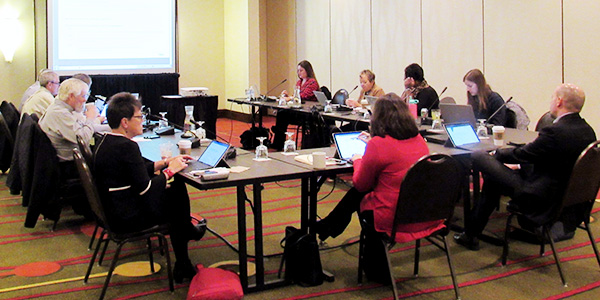By Amanda Durish Cook
CARMEL, Ind. — MISO’s Steering Committee will retain its current membership structure despite the lack of a sector diversity guarantee among representatives.
During a Wednesday conference call, committee members took no action to change the membership structure in a way that would enforce more equitable representation across MISO’s 10 stakeholder sectors.
Chair Tia Elliott said the committee received comments from six member entities that all supported no change. After reviewing comments, the membership considered the item closed.
In advocating for broader representation late last year, Rhonda Peters with Clean Grid Alliance pointed out that the Steering Committee currently has voting members from just four MISO sectors, but it could feasibly have as little as two stakeholder sectors represented in committee votes.
Peters contended that MISO and the committee should work to ensure at least six sectors are represented in voting, calling it a “gatekeeper” of stakeholder issue assignment and subsequent discussion in other stakeholder groups.
Committee members bristled at the “gatekeeper” characterization, with some noting that members represent the stakeholder groups that they were elected to lead, not their individual sectors. Steering Committee membership comprises the chairs of MISO’s main committees and is charged with administrative stakeholder duties — not policy decisions — which include routing new policy discussions to the appropriate stakeholder group for discussion.
Peters called for a special nomination process when a majority of stakeholder sectors are not represented on the Steering Committee, where the full RTO membership would vote to add more voting members to the committee.
“There are now more players than the traditionally integrated utilities,” Peters said during a November committee meeting. “We’re seeing changes in stakeholders, and we’re seeing more changes in the grid. There are more voices now.”
However, multiple companies emphasized that Steering Committee membership merely reflects MISO committee chairs, who can come from any sector and are themselves elected by a vote open to all members.
“Each chair and vice chair position is freely elected by the stakeholders within each respective sector,” Duke Energy’s Jay Rasmussen said. “If a stakeholder does not like the representation within the sector, they should get involved more in the nomination process and campaigning process within their sector. The individual is also free to throw their name into the nominating process. The current process works well, and there is no need to change it.”
However, MISO’s load-serving entity coalition said it was “supportive of diversity in MISO stakeholder entity leadership” and suggested that the RTO make sure chair elections for stakeholder groups are held within the same month so members have the opportunity to factor sector diversity into their votes.





